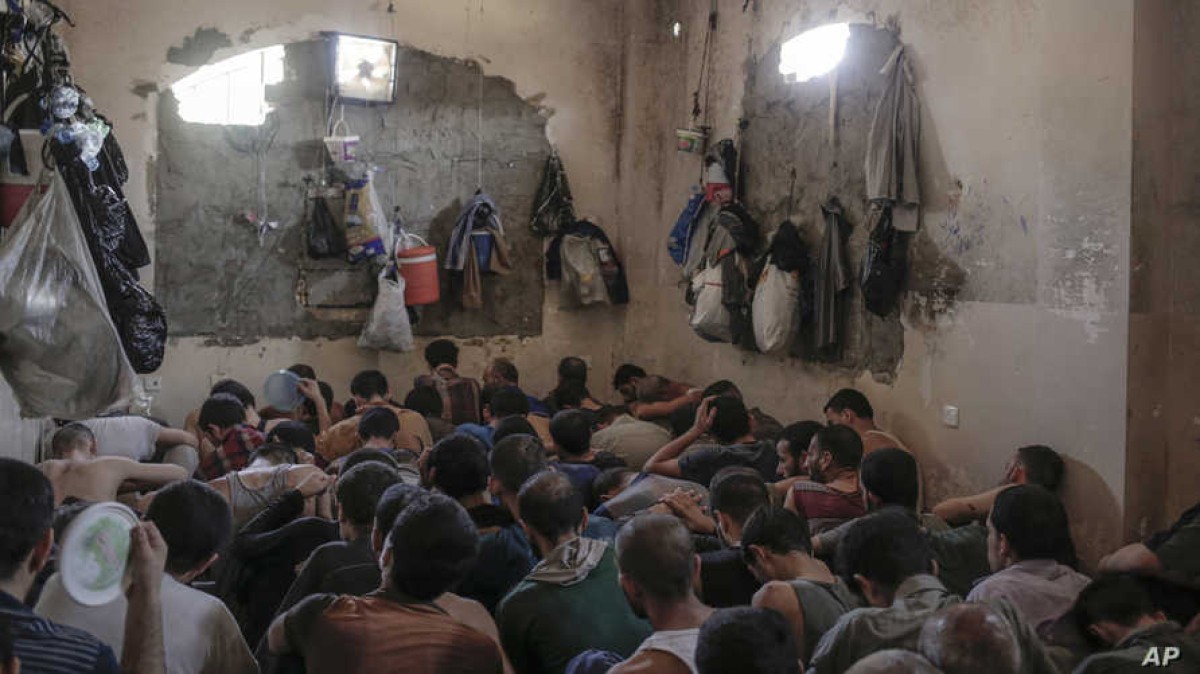"Unfit for life"... a shocking report on Iraqi prisons


The Prison Justice Network announced, in its annual report on the human rights situation in prisons, reformatories, and detention centers in Iraq, that the prisons and detention centers in the country are unfit for life, and they suffer from several problems.
The Chairman of the Network’s Board of Directors, Shawan Saber, said in a statement to Al-Hurra that prisons in Iraq face many problems in various aspects, and that 80% of the prison buildings and detention centers are old and unfit for human life, in addition to the decline in the effectiveness of the public prosecution in many cases. Of these centers and prisons, in addition to their lack of classification of inmates, those convicted on minor charges are placed in one place with those accused of murder and terrorism.
Saber added: “During our visit to the prisons, we found that 27% of them were not reached by United Nations delegations, in addition to the fact that all institutions do not take into account international building distances, in addition to not working to take into account people with special needs.”
With regard to health services, Saber confirmed that the dispensary designated to provide health services to prison inmates is used to provide services to a large number that exceeds its capacity, which in some cases requires resorting to transferring sick inmates to a hospital outside the prison, due to the lack of necessary capabilities. This, in turn, requires a lot of administrative procedures.
For his part, a former Director General of the Ministry of Justice, Kamel Amin, confirmed that the current number of inmates in the Ministry of Justice’s prisons is estimated at 60,000 inmates, which is three times the capacity of the ministry’s prisons, which is estimated at 20,000 inmates. This increase hinders the implementation of any reform programs. It also negatively affects the service reality of prisons, including health services.
Amin added that there are positions affiliated with some security agencies, including the Ministry of Defense and National Security, the Intelligence Service, and even the Popular Mobilization Forces, which are considered a violation of the law, despite being affiliated with official security institutions, but the Prisoner Reform Law clearly indicates that no institution is allowed to arrest civilian citizens, with the exception of my ministries. Justice and Interior.
On the other hand, the Iraqi Ministry of Justice confirmed effective measures aimed at reducing the problem of overcrowding in all of its prisons. In a statement to Al-Hurra, the Ministry’s Media Director, Murad Al-Saadi, said that the Ministry intended to establish new prisons and expand existing prisons in a number of governorates. Including the capital, Baghdad, as part of a plan aimed at reducing the overcrowding rate by 200% by the end of this year, in preparation for it reaching normal rates in the near future.
Al-Saadi added that the Ministry has also prepared plans related to upgrading health centers in some prisons to integrated hospitals through cooperation with the Ministry of Health, in order to improve the service reality in prisons, especially with regard to health services